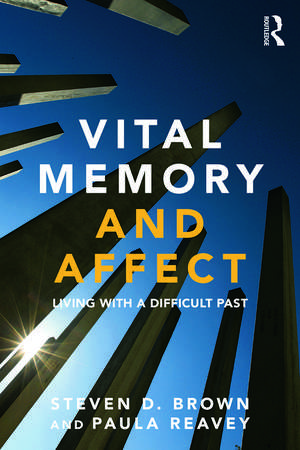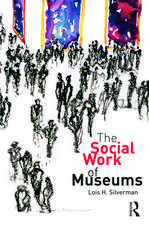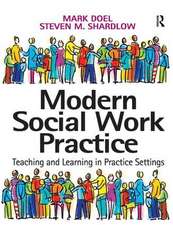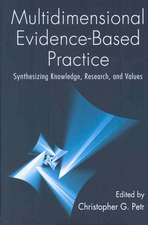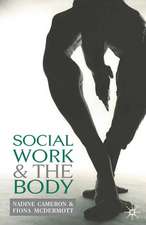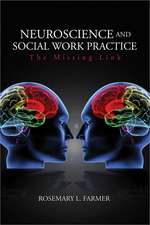Vital Memory and Affect: Living with a difficult past
Autor Steve N. Brown, Paula Reaveyen Limba Engleză Paperback – 12 iun 2015
In Vital Memory and Affect, authors Steve Brown and Paula Reavey explore the highly productive way in which individuals make sense of a difficult past, situated as they are within a highly specific cultural and social landscape. Via an exploration of their vital memories, the book combines insights from social and cognitive psychology to open up the possibility of a new approach to memory, one that pays full attention to the contextual conditions of all acts of remembering.
This path-breaking study brings together a unique set of empirical material and maps out an agenda for research into memory and affect that will be important reading for students and scholars of social psychology, memory studies, cultural studies, philosophy, and other related fields.
| Toate formatele și edițiile | Preț | Express |
|---|---|---|
| Paperback (1) | 453.17 lei 6-8 săpt. | |
| Taylor & Francis – 12 iun 2015 | 453.17 lei 6-8 săpt. | |
| Hardback (1) | 1001.84 lei 6-8 săpt. | |
| Taylor & Francis – 12 iun 2015 | 1001.84 lei 6-8 săpt. |
Preț: 453.17 lei
Nou
Puncte Express: 680
Preț estimativ în valută:
86.72€ • 92.73$ • 72.30£
86.72€ • 92.73$ • 72.30£
Carte tipărită la comandă
Livrare economică 18 aprilie-02 mai
Preluare comenzi: 021 569.72.76
Specificații
ISBN-13: 9780415684019
ISBN-10: 0415684013
Pagini: 258
Ilustrații: 22 black & white illustrations, 13 black & white halftones, 9 black & white line drawings
Dimensiuni: 156 x 234 x 15 mm
Greutate: 0.39 kg
Ediția:1
Editura: Taylor & Francis
Colecția Routledge
Locul publicării:Oxford, United Kingdom
ISBN-10: 0415684013
Pagini: 258
Ilustrații: 22 black & white illustrations, 13 black & white halftones, 9 black & white line drawings
Dimensiuni: 156 x 234 x 15 mm
Greutate: 0.39 kg
Ediția:1
Editura: Taylor & Francis
Colecția Routledge
Locul publicării:Oxford, United Kingdom
Public țintă
Postgraduate, Professional, and UndergraduateCuprins
1. Preface 2. The seven virtues of vital memory 3. The expanded view of memory 4. Memory and life space: affect, forgetting and ethics 5. Feeling an ambivalent past: Survivors of child sexual abuse 6. Managing the memories of others: Adoptive parents and their children 7. Remembering with, through and for others: Surviving the 2005 London Bombings 8. Forgetting who you were: The forensic psychiatric unit 9. Recollection in later life: The reminiscence museum 10. Ordinary people living with a difficult past
Notă biografică
Steven D. Brown is Professor of Organisational and Social Psychology, University of Leicester, UK.
Paula Reavey is Professor of Psychology, London South Bank University, UK.
Paula Reavey is Professor of Psychology, London South Bank University, UK.
Recenzii
'I was invited to review a book that discussses implications ofr memory in the context of vulnerable populations... What I found was a compassionate and creative approach to the art of defining oneself through the powerul tools of self-narrative... As a memory researcher, this book led me to new and interesting territory... To me, the book seems best suited for practitioners who are looking for a new framework within which to think about how personal memories may undermine the vulnerable people they work with and how memory might be used therapeutically. The book is filled with transcriptions of simple social interactions and, in that way, it feels like a clinical workbook of sorts... If a new perspective emerges that provides a better structure for managing the vital memories that Brown and Reavey refer to, I am all for it. This book may well spark a concerted effort toward that goal... The basic message--that it is possible even for vulnerable people to take control and define themselves through self-narrative--is a powerful one.'
-Nancy Franklin, Department of Psychology, Stony Brook Univeristy, PsycCRITIQUES
‘Brown and Reavey show how personal and institutional practices of remembering interact in specific, highly-charged settings. In powerful, moving reports of empirical studies, they reveal the richness and diversity of ordinary people's subtle strategies for managing memories of difficult experiences. This compelling book will challenge and reward scientists, practitioners, and policy-makers interested in the mechanisms and techniques driving our complex ecologies of remembering.’
– John Sutton, Department of Cognitive Science, Macquarie University, Australia
'Brown and Reavey calmly yet devastatingly disassemble long standing key assumptions and models in the interdisciplinary study of memory. They render the complex accomplishments of remembering intelligible and familiar; a truly liberating work.'
– Andrew Hoskins, Editor-in-Chief, Memory Studies
"The supreme appeal of Brown and Reavey's conceptual and empirical work lies in how they afford ways for psychology to study memory beyond the life-space of the person, to ask how person and environment, body and ecology, life and cosmos, topologically fold and extend to shape and actualize possible worlds. And so the authors serve a compelling account why vital memories challenge received methodological and ontological certainties in psychology, and therefore matter for academic and clinical psychologists alike." – Matthew J. Allen, British Journal of Psychology
‘Brown and Reavey show how personal and institutional practices of remembering interact in specific, highly-charged settings. In powerful, moving reports of empirical studies, they reveal the richness and diversity of ordinary people's subtle strategies for managing memories of difficult experiences. This compelling book will challenge and reward scientists, practitioners, and policy-makers interested in the mechanisms and techniques driving our complex ecologies of remembering.’
– John Sutton, Department of Cognitive Science, Macquarie University, Australia
'Brown and Reavey calmly yet devastatingly disassemble long standing key assumptions and models in the interdisciplinary study of memory. They render the complex accomplishments of remembering intelligible and familiar; a truly liberating work.'
– Andrew Hoskins, Editor-in-Chief, Memory Studies
-Nancy Franklin, Department of Psychology, Stony Brook Univeristy, PsycCRITIQUES
‘Brown and Reavey show how personal and institutional practices of remembering interact in specific, highly-charged settings. In powerful, moving reports of empirical studies, they reveal the richness and diversity of ordinary people's subtle strategies for managing memories of difficult experiences. This compelling book will challenge and reward scientists, practitioners, and policy-makers interested in the mechanisms and techniques driving our complex ecologies of remembering.’
– John Sutton, Department of Cognitive Science, Macquarie University, Australia
'Brown and Reavey calmly yet devastatingly disassemble long standing key assumptions and models in the interdisciplinary study of memory. They render the complex accomplishments of remembering intelligible and familiar; a truly liberating work.'
– Andrew Hoskins, Editor-in-Chief, Memory Studies
"The supreme appeal of Brown and Reavey's conceptual and empirical work lies in how they afford ways for psychology to study memory beyond the life-space of the person, to ask how person and environment, body and ecology, life and cosmos, topologically fold and extend to shape and actualize possible worlds. And so the authors serve a compelling account why vital memories challenge received methodological and ontological certainties in psychology, and therefore matter for academic and clinical psychologists alike." – Matthew J. Allen, British Journal of Psychology
‘Brown and Reavey show how personal and institutional practices of remembering interact in specific, highly-charged settings. In powerful, moving reports of empirical studies, they reveal the richness and diversity of ordinary people's subtle strategies for managing memories of difficult experiences. This compelling book will challenge and reward scientists, practitioners, and policy-makers interested in the mechanisms and techniques driving our complex ecologies of remembering.’
– John Sutton, Department of Cognitive Science, Macquarie University, Australia
'Brown and Reavey calmly yet devastatingly disassemble long standing key assumptions and models in the interdisciplinary study of memory. They render the complex accomplishments of remembering intelligible and familiar; a truly liberating work.'
– Andrew Hoskins, Editor-in-Chief, Memory Studies
Descriere
This book provides insight into significant and particularly difficult autobiographical memories among vulnerable groups.
